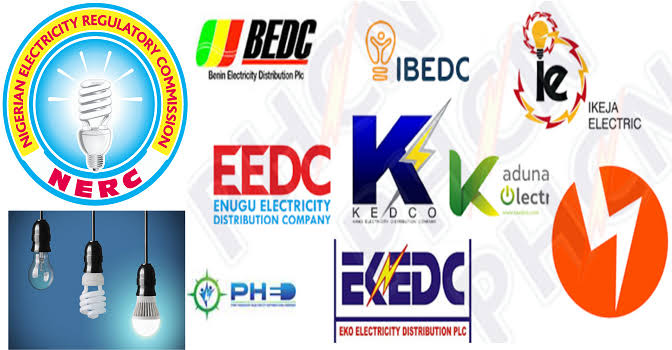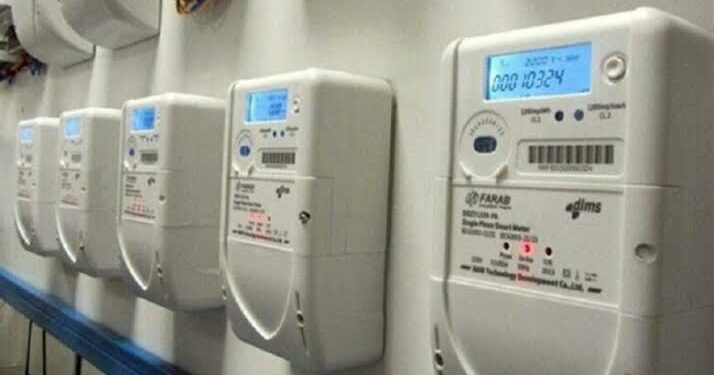The Nigerian Electricity Regulatory Commission (NERC) has revealed that in 2023, it received a total of 1,220,245 complaints from electricity consumers across the country, with issues surrounding metering and overbilling accounting for the majority of these grievances. This was disclosed in the commission’s report, which highlighted key consumer concerns in the electricity distribution sector.
According to the report, the nature of complaints received from power users ranged from metering problems to overbilling, disconnection, service interruption, delayed reconnection, load shedding, and voltage fluctuations. These issues reflect the ongoing challenges faced by electricity consumers in Nigeria’s power sector.
“The total number of complaints received across all Discos (distribution companies) in 2023 was 1,220,245,” NERC stated in its report. The data showed that Ibadan and Port Harcourt Discos recorded the highest number of complaints, with 207,216 and 205,054 respectively.

These figures represented 16.98 percent and 16.80 percent of total complaints received. On the other hand, Aba and Yola Discos had the least number of complaints, registering 4,029 and 11,930, which accounted for just 0.33 percent and 0.98 percent of total complaints, respectively.
The commission further highlighted that 1,156,553 of the total complaints were resolved, leading to a resolution rate of 94.78 percent. The majority of these complaints, approximately 53.09 percent, were related to metering issues, while 16.30 percent were connected to billing problems, and 8.16 percent pertained to service interruptions. Together, these three categories represented 77.55 percent of the total complaints received during the year.
While addressing customer grievances, NERC’s report also touched on the financial performance of the electricity distribution companies (Discos) in 2023. The report noted that the total revenue collected by the Discos during the year amounted to N1.07 trillion. However, this was out of a total bill of N1.46 trillion issued to customers, leaving an outstanding balance of N385.73 billion. This shortfall translated into a collection efficiency rate of 73.64 percent.
NERC explained that this figure indicated that for every N100 worth of energy billed to customers, only about N73.64 was collected, leaving N26.36 unrecovered. The report emphasized that the combination of low collection efficiency and billing inefficiency has continued to hamper the financial liquidity of the electricity sector. This shortfall, in turn, affects the overall ability of the power industry to grow and attract the necessary investments required for its development.

The regulator specifically noted that only Ikeja Electricity Distribution Company (IKEDC) achieved a collection efficiency rate above 90 percent, which NERC attributed to the fact that Ikeja Disco led the distribution companies in terms of metering coverage, with a metering rate of 72.54 percent as of the end of 2023. Eko Disco and Abuja Disco followed closely behind, with collection efficiencies of 84.31 percent and 80.19 percent, respectively.
At the opposite end of the spectrum, Yola Electricity Distribution Company (YEDC) recorded the lowest collection efficiency at 43.56 percent, underscoring significant challenges in revenue recovery in certain regions of the country.
In addition to these financial figures, NERC’s report also sheds light on the government’s role in subsidizing electricity costs for consumers. It revealed that in 2023, the Federal Government paid a total of N610 billion in electricity subsidies.
The report stated that the cumulative Minimum Remittance Obligation (MRO) for Discos stood at 52.92 percent, meaning that the distribution companies were expected to remit N685.69 billion out of a total of N1.29 trillion in invoices issued by the Nigeria Bulk Electricity Trading Plc (NBET).
However, the government’s intervention resulted in a subsidy obligation of N610.06 billion, which accounted for 47.08 percent of the total NBET invoices. This substantial subsidy played a crucial role in cushioning the financial burdens on Discos and consumers alike.
Moreover, the report indicated that an MRO-adjusted invoice of N858 billion was issued by NBET and the Market Operator for energy costs and administrative services provided to the Discos throughout 2023.
Out of this amount, the Discos remitted a total of N706.73 billion, leading to a deficit of N151.30 billion, which NERC referred to as a “market shortfall.” This underpayment underscored the ongoing financial strain within the electricity distribution sector.
“The gross DisCo remittance rate to the upstream segment for 2023 was 82.37 percent,” the report noted, further highlighting the revenue shortfalls that continue to affect the financial health of the power sector.
The NERC’s detailed report illustrates the persistent challenges facing Nigeria’s electricity distribution sector, ranging from metering inefficiencies and overbilling to inadequate revenue collection and significant subsidy obligations.
Despite some improvements in the resolution of customer complaints, the financial struggles within the industry pose ongoing obstacles to ensuring reliable and sustainable electricity supply across the country.
































